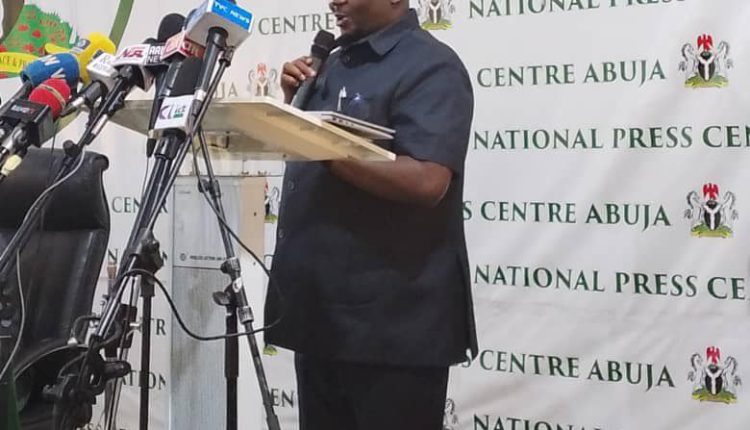150 Million Nigerians Now Have Access To Adequate Electricity,Says Minister Of Power.
Felicia Asuquo, Abuja
The Minister of Power, Adedayo Adelabu, has disclosed that approximately 150 million Nigerians now have access to adequate electricity, while 80 million still lack reliable power.
He made this known on Thursday 17,April 2025,during the 2025 Ministerial Sectoral Update Conference held in Abuja, where he spoke alongside the Minister of Information and National Orientation, Mohammed Malagi, and other key stakeholders.
Adelabu stated that the progress stems from Nigeria’s participation in the “Mission 300” initiative—an ambitious joint effort by the World Bank and the African Development Bank (AfDB) aimed at providing electricity access to 300 million Africans by 2030.
“The compact sets ambitious goals to enhance electricity access, increase renewable energy adoption, and improve clean cooking solutions for millions of Nigerians — that is Mission 300, and we are making good progress on this,” he said.

He continued, “I’m happy to tell you that out of the 300 million Africans that the World Bank and AfDB aim to reach, Nigeria is on course to account for no less than 25 per cent, which translates to about 75 million Nigerians. When we presented our compact, they agreed with us.”
According to Adelabu, Nigeria, with a population of over 240 million, currently provides adequate electricity access to 150 million people. However, he emphasised that the issue is not merely access but the ‘reliability’ of that access.
“As it is today, Nigeria—a country with about 240 million people—has access for 150 million people already, while about 80 million lack access to adequate electricity in Nigeria.
“The real challenge lies in the stability and affordability of electricity. That’s how we measure reliability. We must ensure that those who have access enjoy consistent and affordable power,” he said.
The minister urged global financiers to prioritize strengthening Nigeria’s power grid alongside off-grid solutions, warning that over-reliance on renewables risks leaving urban areas and industries behind.
“When you’re extending access to the 300 million people under this initiative, let’s not concentrate solely on renewable energy—which is more appropriate for rural communities.
“Strengthening grid infrastructure is equally crucial so that those connected to the grid can enjoy reliable power. Otherwise, how do we explain the growing number of Nigerian companies opting out of the national grid to generate captive power?
The minister also highlighted recent improvements in Nigeria’s power generation capacity.
“We have increased our generation to 6,003 megawatts, up by 1,700 megawatts in one and a half years since President Tinubu assumed office.
It took Nigeria over 40 years to achieve an incremental 2,000 megawatts of average energy; we achieved this in less than two years.
Past administrations have their positives, but if they had been adding at least 1,000 megawatts of power since 1999, we would be talking about 26,000 megawatts and more in Nigeria.
“Now that we (the current administration) have created the trajectory, if we can sustain it, I can assure you that before the end of this administration’s first term in 2027, we should be able to generate and distribute nothing less than 8,000 megawatts of power.” Adelabu declared.
He also announced that the Kaduna Power Plant would become operational before the end of 2025.
On metering challenges, Adelabu assured Nigerians that “the metering gap will soon be a thing of history.”



